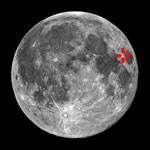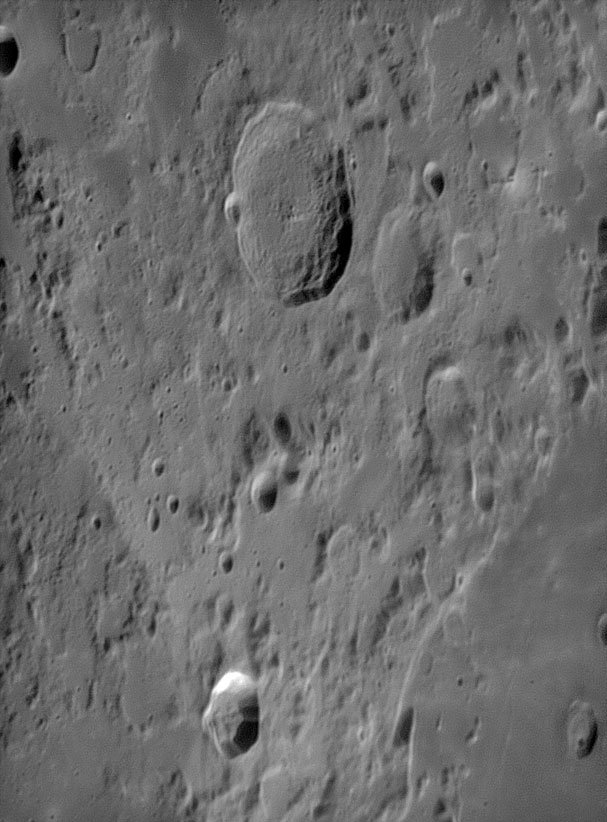|
 Proclus
est un jeune cratère de 28 km et profond de 2400 m situé à l'Ouest de Mare
Crisium (Mer des Crises), sur le rivage Est de Palus Somni (Marais du
Sommeil). Proclus est polygonal dans la forme avec un albedo élevé, étant le
second après Aristarchus par son éclat. Le fond est inégal avec quelques
petites élévations, et une petite montagne centrale. Le cratère a un système
notable de rayon qui se prolonge sur plus de 600 kilomètres. Les rayons
montrent une asymétrie de forme, avec les plus importants vers le Nord-ouest
et le Nord-est. Il y a un arc sans éjecta au Sud-ouest. Ces dispositions de
rayons suggèrent un impact oblique avec un angle faible.
Proclus
est un jeune cratère de 28 km et profond de 2400 m situé à l'Ouest de Mare
Crisium (Mer des Crises), sur le rivage Est de Palus Somni (Marais du
Sommeil). Proclus est polygonal dans la forme avec un albedo élevé, étant le
second après Aristarchus par son éclat. Le fond est inégal avec quelques
petites élévations, et une petite montagne centrale. Le cratère a un système
notable de rayon qui se prolonge sur plus de 600 kilomètres. Les rayons
montrent une asymétrie de forme, avec les plus importants vers le Nord-ouest
et le Nord-est. Il y a un arc sans éjecta au Sud-ouest. Ces dispositions de
rayons suggèrent un impact oblique avec un angle faible.
 (English version,
Wikipedia copyright)
(English version,
Wikipedia copyright)
Proclus
is a young lunar impact crater located to the west of the Mare Crisium, on
the east shore of the Palus Somni. It lies to the south of the prominent,
terraced Macrobius crater, and west-northwest of the flooded crater Yerkes.
Between Proclus and Yerkes, on the edge of the mare, are the Promontories
named Olivium and Lavinium.
The rim of Proclus crater is distinctly polygonal in shape, having the shape
of a pentagon, and does not rise very far above the surrounding terrain. It
has a high albedo, being second only to Aristarchus crater in brightness.
The interior wall displays some slumping, and the floor is uneven with a few
small rises from slump blocks.
The crater has a notable ray system that extends for a distance of over 600
kilometers. The rays display an asymmetry of form, with the most prominent
being rays to the northwest, north-northeast, and northeast. There is an arc
with no ejecta to the southwest. These features suggest an oblique impact at
a low angle.
|
|



